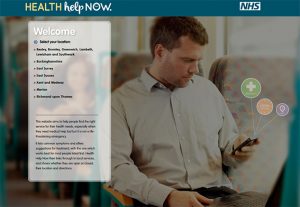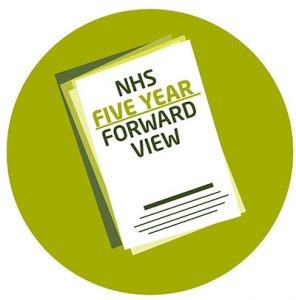Latest News
Adult and children’s services ‘face £3.2bn funding gap’
Adult social care and children’s services budgets in England will face a combined funding gap of almost £3.2bn by the end of the decade, local government leaders have claimed.
Analysis by the Local Government Association found that children’s services will see a £1.9bn gap emerge between funding and need from 2016-17 to 2019-20, while adult social care will be hit by a £1.25bn shortfall over the same period. The figures were included in the LGA’s submission to the Treasury ahead of the chancellor’s Autumn Statement next month.
The children’s services shortfall refers to non-ring fenced funding on children’s social care and education services, on which councils currently spend £11.1bn. The LGA said councils were facing rising demand without additional government funding to meet it, and pointed to the number of child protection plans having risen by 60% since 2008.
“It is wrong to allow such an unsustainable pressure to build up on a service that protects our most vulnerable children,†it said.
Local authority children’s services did not receive any additional funding in the 2015 spending review. The Treasury did hand councils new tax raising powers, the social care ‘precept’, to boost adult social care funding and also promised to invest an additional £1.5bn in these services through the Better Care Fund by 2019-20. However, under current plans, only £105m of this is due to become available next year, £825m in 2018-19 and the full £1.5bn in 2019-20.
The LGA calculated that even with this additional revenue, councils will still face a £1.3bn funding gap by 2019-20 when forecasting for demand, inflation on provider fees and the impact on the care sector of the introduction of the National Living Wage in April 2016, which boosted wages for many care workers.
“If this gap is not plugged we are likely to see more care providers leaving the market, cuts to care services, and risk the safety and quality of care,†the LGA said.
It warned that the foundations of the adult social care system were “extremely unstableâ€, and pointed to a recent survey of social services directors showing that half of local authorities in England had seen a home care or residential care provider exit the market in the first half of 2016.
The LGA called on the government to bring forward £700m of the promised additional Better Care Fund investment as the funding was “urgently needed†to tackle immediate challenges facing services. The association had previously called for this £700m to be made available in the current financial year.
It also recommended ministers should look to reform business rate use and council tax setting powers to allow councils to take “financial decisions which are right for their local areaâ€.

Peer Supporter Training at Southwark Wellbeing Hub
They will be holding a four day training course, starting on Monday 21st November, for people who are committed to becoming voluntary Peer Supporters for the Southwark Wellbeing Hub.
As a Peer Supporter, your lived experience of mental distress will be at the heart of your role. You will use your own experiences to empathise with and support people who are experiencing mental distress. You will work alongside people who use the Southwark Wellbeing Hub, a service run by Together for Mental Wellbeing.
Once you have completed the training and a full DBS check, you will become a Peer Supporter and will offer one-to-one support to a resident in Southwark who is facing mental distress or using mental health services. Whilst volunteering as a Peer Supporter, you will receive regular support and guidance from Southwark Wellbeing Hub’s Peer Support Coordinator. You can go to them with any issues or questions about peer support, and you will work with them to develop and use your skills as a Peer Supporter in a way that benefits you and the people you are supporting.
Please share this email with anyone who might be interested in becoming a Peer Supporter.
The training will take place on Monday 21st November, Monday 28th November, Thursday 1st December and Thursday 8th December, 10.30am – 4pm. Training will take place at the Southwark Wellbeing Hub, 29 Peckham Road, SE5 8UA. Participants must be able to attend all four sessions.
To find out more or apply for the role, please contact Nia Roberts, Peer Support Coordinator on 020 3751 9684 or [email protected]

Need health help in a hurry? Try Health Help Now.
The free app helps you to check symptoms, find the best place for treatment and see which nearby services are open. No matter where you are in any of the six south east London boroughs, if you need health advice in a hurry, later at night or at the weekend, the app will quickly guide you to the most appropriate support nearby.
If you’ve not tried it yet, download it now for free by searching for Health Help Now in your app store or visit www.healthhelpnow-nhs.net

Southwark residents to benefit from new diabetes prevention programme
Over the next 12 months, all people who have already been identified as at risk of diabetes will be sent a letter offering a place on the programme. Suitable people will continue to be identified via the NHS Health Checks programme or their GP.
Patients who are referred get tailored, personalised help to reduce their risk of Type 2 diabetes including education on healthy eating and lifestyle, help to lose weight and bespoke physical exercise programmes, all of which together have been proven to reduce the risk of developing the disease.

Southwark Council and Southwark CCG’s joint local vision explained in Five Year Forward View of health and social care
The STP describes how local health and social care organisations will work together to produce a population based strategy to deliver safe and high quality services now and in the years to come. Find out how the STP aims to ensure financial and clinical sustainability over the next five years.
As well as planning with colleagues in south east London, Southwark CCG have also set out our joint local vision with Southwark Council in the Southwark Five Year Forward View of health and social care. This document describes the challenges that face us in Southwark, and the approach Southwark CCG will take to address them. Read the full documentor the summary version.

Pharmacy funding cuts ‘could force closures’
The Pharmaceutical Services Negotiating Committee told the BBC the Department of Health has drawn up proposals to cut funding by 12% from December.
It said the cuts were “madness” and would damage the NHS and social care.
The Department of Health said no final decision had been made. An announcement is expected shortly.
Sue Sharpe, chief executive of the PSNC, told BBC Radio 4’s Today programme the changes would throw the health service into “chaos”, as more people would be forced to turn to GPs instead of pharmacists.
‘Ignorant of value’
In a letter to the Department for Health seen by the BBC, she wrote: “The proposals were and remain, founded on ignorance of the value of pharmacies to local communities, to the NHS, and to social care, and will do great damage to all three. We cannot accept them.”
The PSNC – which negotiates with the Department of Health and NHS England on behalf of pharmacies – said it had been told pharmacies would receive £113m less than expected from December 2016 to March 2017 and £208m less the following year.
The cuts amount to 12% in the coming months and 7% for the next financial year, compared with current spending.
Earlier this year, the then health minister Alistair Burt suggested between 1,000 and 3,000 pharmacies could be closed after spending cuts, although the Department of Health now says it does not recognise the figure.
Officials have been negotiating cuts to the money pharmacies receive from government since last December.
‘No final decision’
Plans for a £170m cut this year were delayed after 2m people signed a petition opposing the change.
Pharmacies get around 90% of their income from the money government pays for dispensing prescriptions. It costs the taxpayer £2.8bn a year.
A Department for Health spokesman said it was investing £112m to put 1,500 pharmacists in GP’s surgeries.
He said: “We have worked collaboratively with the PSNC and have listened to their suggestions and counter proposals over the course of many months.
“Ministers are considering a proposed package for the sector and no final decision has been taken, but we are committed to offering more help to those pharmacies people most depend on‎ compared to others.”

CQC chief warns of ‘tipping point’ for social care
Almost half (49%) of adult care services rated ‘requires improvement’ by the Care Quality Commission failed to achieve a higher rating at re-inspection, the watchdog has said.
A further 8% of services had deteriorated and were downgraded to an ‘inadequate’ rating.
The findings come from the CQC’s annual report on the state of health and care services in England. Of the 1850 services re-inspected in 2015-16, 904 had no change to their ‘requires improvement’ rating, 153 became ‘inadequate’, and the remaining 793 were able to improve.
Improvements were more widespread for ‘inadequate’ services, with 76% achieving a higher rating at re-inspection (23% jumped from ‘inadequate’ to ‘good’).
Speaking at the launch of the report, CQC chief David Behan, said: “It is hard to improve services that are struggling. It is not just about money – it is about good leadership, collaborating with others, and the ability to learn when things go wrong. In the services we re-inspected in adult social care, some of those characteristics weren’t there.â€
‘Flagging the risk’
Behan added that the failure of services to make improvements quickly enough was one of five factors that suggested the adult social care market was “approaching a tipping pointâ€.
The other four factors, which are supported by evidence from the CQC’s inspections and market oversight data, as well as a variety of external sources, are:
- Residential and domiciliary care services are starting to hand back “undeliverable†contracts to local authorities due to cost pressures.
- The steady increase in nursing home beds – from 205,000 beds in 2009 to 224,000 in March 2015, has now stalled, with numbers remaining static since that time.
- The increase in the number of people living with unmet social care needs – Age UK estimates this has risen from 800,000 in 2010 to over a million in 2015.
- The decline in the numbers of older people receiving local authority-funded social care, which has fallen by 26% since 2009.
Behan said: “I have worked in health and social care for 38 years and I cannot recall a time where those five factors have occurred together.
“We do not know when this tipping point is going to happen but if we did not flag this risk to sustainability in the future we would be failing in our responsibilities.â€
The fragility of the adult social care system is also now beginning to impact on the performance of NHS care, the report warned. It said the increase in A&E attendances, emergency admissions, and delayed discharges were all directly linked to social care pressures.
Behan added: “While there are no easy answers or quick fixes, what distinguishes many of the good and outstanding services is the way they work with others – hospitals working with GPs; GPs working with social care, and all providers working with people who use services.
“Unless the health and social care system finds a better way to work together, I have no doubt that next year there will be more unmet need, less improvement and more deterioration.â€
‘Poor safety and leadership’
The CQC had inspected more than 16,000 care services by 31 July 2016. Of these, 71% were rated ‘good’, 1% ‘outstanding’, 26% ‘requires improvement’ and 2% ‘inadequate’.
Services continued to perform best at being ‘caring’, with nine out of 10 providers receiving a ‘good’ or ‘outstanding’ rating for this area of the regulator’s inspection criteria.
Ratings for safety and leadership were comparatively lower, with 3% of services rated ‘inadequate’ for safety and 3% receiving an ‘inadequate’ rating for leadership.
The report said these low ratings were “concerning†and had resulted in people not getting the right medicine or staff not having time to care for people properly. It highlighted the prosecution of a care home owner and its former manager in September 2016, who were fined £50,000 after admitting they failed to provide safe care. Behan said at the report launch that the watchdog was in the process of bringing a further 14 prosecutions against care services.
‘Brexit uncertainty’
The report flagged the ongoing recruitment and retention issues in the sector and pointed to the uncertainty surrounding the status of EU workers – who make up an estimated 7% of the adult social care workforce – and to the extent they will be affected by the UK’s vote to leave the European Union. The recruitment of nurses remains a “significant concernâ€, it said.
Margaret Willcox, vice-president of the Association of Directors of Adult Social Services, said: “We have been arguing for some time now that adult social care needs to be given adequate recognition and resourcing.
“Services are being cut and the outlook for future care is bleak. We are at a tipping point where social care is in jeopardy and unless the government addresses the underfunding of the sector, there will be worrying consequences for the care market, the NHS and, most importantly, for older and disabled people, their families and carers.â€
A Department of Health spokesperson said that the report showed that most NHS services, social care providers and GP practices inspected by the CQC were rated ‘good’ or better and “improvement is taking place all over the countryâ€.
“The government is investing £10 billion to fund [the NHS’s[ own plan for the future, and crucially is ensuring that the amount of money available to local authorities for social care is rising in future years of the parliament, reaching up to £3.5 billion extra by 2020.â€

Flu jabs for carers
If you are caring for someone you may be concerned about how being ill will affect you as a carer and the person you care for.
If you are the main carer for an elderly or disabled person who may be put at risk if you fall ill, and/or if you are in receipt of Carer’s Allowance, you should be offered a free flu jab, according to government policy.
Other categories of people are also eligible for a free flu jab, including those aged 65+, those who are pregnant, and those with certain health conditions.
Further information on flu jabs in England can be seen on the NHSÂ website.

Councils fall behind on Care Act reviews
Local authorities in England have fallen short of an expectation that care plans should be reviewed at least once a year under the Care Act, official figures reveal.
Data published today by NHS Digital shows that 55 per cent of people who had been receiving care for at least 12 months did not receive a review during 2015-16. Where reviews had been carried out, around half led to changes in care plans. A third of carers in contact with councils did not receive a review or assessment.
Under the Care Act guidance there is an expectation that reviews take place “no later than every 12 monthsâ€.
In May Community Care revealed social work teams were racking up backlogs of reviews due to staff shortages, with some service users waiting up to 18 months to be seen.
A month later, a report by the House of Commons public accounts committee called on the government to consider whether the annual review requirement was creating ‘unnecessary’ costs for local authorities.
The NHS Digital publication marks the first official data on local authority performance in the first year of the Care Act, with the legislation coming into force in April 2015. Key findings included:
- Councils received 1.81m requests for support from new clients in 2015-16, a slight decrease on the 1.83m received the previous year.
- More than half (57%) of requests resulted in no direct support from the council, including 28% that resulted in signposting or universal services.
- Councils delivered long-term social care support to 873,000 people during the year, down from the 885,000 in 2014-15.
- There were 387,000 carers in contact with local authorities, of whom 314,000 (81%) received direct support.
Campaigners expressed concern that fewer people were accessing care and support and called on ministers to prioritise social care funding in next month’s Autumn Statement.
Vicky McDermott, chair of the Care and Support Alliance, said: “Today’s publication makes sobering reading, showing that fewer people are receiving long-term support despite demographic pressures meaning that more and more people need it.
“Because of a lack of funds, cuts to care budgets mean that vulnerable older people, disabled people and their carers are being forced out of the system.â€

The doctor will see you now… on your smartphone
At this point, I downloaded the app from Babylon Health, one of the leaders in online doctor consultations, on to my smartphone. The homepage was purple and teal, the writing welcomingly blobby. I tapped on “check a symptom†and after half-a-dozen questions, it suggested that I “book a consultationâ€. I was offered a choice between a GP, a specialist or a therapist. The appointment could be on the phone or a video call.
I selected a GP and a video call and was booked in to see Dr Patel 34 minutes later. As I waited to speak to him, I learned from his biographical detail that he was practising in Leeds, that he’d visited five of the seven continents and enjoyed cycling and skiing. At exactly 3.30pm, he materialised on my phone and welcomed me to Babylon. Our appointment was much like a regular exchange with a GP. There were some surreal moments: as I tried to show Dr Patel my neck, I was reminded of an Amy Schumer comedy sketch on the precariousness and indignity of sexting.
But he was engaged and reassuring, calling back when the video feed dropped, and after a few prompts he determined we were probably looking at a sebaceous cyst. They are non-cancerous and can be left alone, as long as they don’t change in size or shape. Soon after the consultation, in case I’d forgotten anything, a video of it was available on my Babylon app and I was sent a short text from Dr Patel that summarised his findings and advice. If I had needed a prescription, it would have been sent within the hour to a local pharmacy. Two days later, my phone beeped with a message to check how I was feeling.
It was a very thorough service, but there was a cost. Babylon offers its triage services, which advise on the urgency of treatment, free, but to speak to a doctor, it’s a rolling monthly payment of £4.99 or a one-off fee of £25. In my case, it provided peace of mind 10 days quicker than if I’d waited to see my GP. But the bigger question is what impact online doctors will have on the provision of healthcare in the UK: are they a valuable tool to reduce the demands on our overloaded doctors and nurses or are they, as one GP I spoke to said, opening “a door to NHS destruction�
The offices of Babylon in South Kensington have been designed to evoke the hanging gardens, one of the seven wonders of the ancient world. A tough brief, you’d imagine, and the original designers estimated a cost of £1,000 per square foot. Ali Parsa, the founder of Babylon, bristled at such extravagance and decided to oversee the decorations himself. The result is a long, open-plan office with fake trees and hanging plants dotted around. All the accoutrements of the kidult, forward-thinking workplace are present: free toast and cereals, ping-pong tables that double as large desks for team meetings. An adult scooter leans against a desk, although it’s not clear if this is personal transportation or to whizz along the banks of desks.
Why the name Babylon? “First, I was born in Iran,†says Parsa, an energetic, fast-talking 51-year-old with a bald head and statement Cutler & Gross spectacles, “so Babylon was always part of our culture as one of the big Persian cities. And two, there is a story about Babylon that goes really well with healthcare. If you got sick in Babylon about two and a half thousand years ago, you’d stand on the square that was designated as a square of the sick and every resident that passed by would tell you if they’d ever come across that disease and, if they had, how they cured themselves. And with that very simple peer-to-peer health service, they had the longest life expectancy in the world.â€
Parsa laughs: “But the truth is that all of that is nonsense. We called it Babylon because we were too cheap to pay a design agency or a PR agency to go out and figure out some funky name.â€
In the reception area, the mission statement of Babylon is written on a large mirror: “Our purpose is to democratise healthcare. We are going to put an accessible and affordable health service into the hands of every person on Earth.†That’s quite an ambitious goal, I suggest.
“Of course it’s difficult,†he nods. “But actually, if you dissect that, the most difficult part is that you put something in the hands of every human being on Earth. Well, somebody already has. Almost every human being on Earth now has a mobile device. What Elon Musk is doing with SpaceX, creating a ship, sending it to space, that’s difficult! Putting a doctor on your mobile phone, relatively speaking, is not difficult.â€
A number of progressive tech entrepreneurs appear to agree with Parsa. Push Doctor, founded by Eren Ozagir, claims to be the largest service of its kind in Europe, with about 7,000 NHS doctors in its network. It came about, apparently, after Ozagir fell sick on a trip to the US and bemoaned the fact that you could organise a taxi, a boat, even a helicopter through your phone, but not a doctor. Push Doctor does not attempt to triage or diagnose patients, but instead puts them straight in touch with GPs doing consultations during the time they could otherwise be doing private practice. An appointment costs at least £20 and a premium membership is the same price per month.
Other players in this market include Now GP and GPDQ (GP delivered quick). GPDQ can arrange for a doctor to come in person to a home, office or hotel in central London between 8am and 11pm, 365 days a year. The average wait is about 90 minutes.
The core message of all of these services is that they are not threatening the NHS, but working alongside it to reduce the burdens it faces coping with a growing and ageing population. Babylon, for example, has started a trial scheme with two GP surgeries in Essex where all patients can use the service free of charge. Early reports apparently found that the average waiting time for appointments came down by a week, to two weeks.
The development also fits with the idea that millennials now expect all their services to be streamlined and efficient: from getting the new ramen joint to deliver via Uber to having your dry cleaning picked up from your desk. David Mott from Oxford Capital, which raised £8.2m in funding for Push Doctor, even suggested the NHS should be left to the elderly and infirm, while time-poor 18-40-year-olds use the new app-based services.
Where Babylon seems to be taking the lead – and, Parsa believes, reducing the crisis of the global shortfall of doctors – is with its use of artificial intelligence. When I tried its “check a symptom†feature for the lump on my neck, I was actually being quizzed by what they consider the world’s first accurate AI triage service. In June, an in-house “live challenge†pitted Babylon’s AI against a senior A&E nurse and an Oxford-educated junior doctor. UCL professor Irwin Nazareth compared the results. According to Nazareth, “check a symptom†was consistently faster and more accurate in triaging patients than its human rivals: it scored 92% accuracy compared to the doctor’s 82% and the nurse’s 77%.
This experiment was not the most rigorous of scientific evaluations, but it has shown enough promise for some heavyweight backers to get behind Babylon. In January 2016, the company raised £19m to further develop its artificial-intelligence platform. Demis Hassabis and Mustafa Suleyman, co-founders of DeepMind, the AI startup bought by Google for $500m, who had already been advising Babylon, invested, as did Richard Reed, Adam Balon and Jon Wright, the men behind Innocent Drinks. For Parsa, the next stage, probably as soon as next year, is that the Babylon app will be able to diagnose patients without a doctor ever needing to be involved.
“I’d trust a machine over a human any day of the week – and I already do,†says Parsa, whose background is in engineering, not medicine. He arrived in Britain as a refugee in his late teens and has been, among other things, an investment banker and co-founder of Circle, the private healthcare company that runs hospitals in Bath and Reading and in 2011 took over the struggling Hinchingbrooke hospital in Cambridgeshire. Parsa stood down as Circle’s chief executive in 2012, before launching Babylon in 2014.
“The machine doesn’t get worked up, it doesn’t get angry, it doesn’t get pushed because there are 20 people outside in the queue,†says Parsa. “A machine learns every time a diagnosis happens. A doctor might do 7,000 consultations. The machine will do thousands of times more. Therefore the speed at which it learns and everything it sees increases. So we believe in time we will do this more accurately than a human.
“Even the specialists. How many papers were published last year on dermatology? It was 11,000; 11,000 pieces of research that were worthy of being written down for somebody to take note. Which dermatologist reads this? They say, ‘Oh yeah, I spend my weekends catching up.’ How many can they read? So the idea that a human brain can keep in touch – ha!â€
Parsa does not think that artificial intelligence will replace humans – at least not in the foreseeable future. But the potential is clearly there. He cites the example of DeepMind’s AlphaGo program, which inflicted a stunning 4-1 defeat on the 18-time Go world champion Lee Sedol earlier this year. The 3,000-year-old Chinese boardgame had been considered one of the “grand challenges†of AI because of its almost infinite number of possible moves. DeepMind puts the success of AlphaGo down to the fact that the program almost mirrored a human brain: it used trial and error, allied to a dense historical database of games from the past, to play both creatively and minimise mistakes.
“The one game AlphaGo lost was because the guy [Lee] did something that the machine had never imagined can be done,†says Parsa. “He used his intuition to say, ‘You know what? I’m going to do something very human here.’ As opposed to something very machine. And the machine got confused. So the methodology we employ is very similar to the way a human brain works, whereby we teach a human how to become a doctor and the same way we teach a machine how to become a doctor. We don’t just use ginormous amounts of data, we give them rules and functions.â€
It takes around seven years to train a human to become a doctor – how long then for a machine? “Well, we’ve been at it for three years,†says Parsa, “so maybe it will take us seven years too.â€
Not everyone is excited about the boom in online doctors. While there has been a rush by GPs to supplement their incomes with shifts at places such as Babylon – it has about 100 doctors on call – others are concerned about the impact that paid-for services will have on the NHS.
“General practitioners are a resource in short supply and in great need,†says Margaret McCartney, a GP in Glasgow, Radio 4 regular and author of the forthcoming The State of Medicine: Keeping the Promise of the NHS. “We as a profession are under huge strain and enormous pressure. These companies are essentially using market forces to determine access to GPs rather than need. GPs working in these companies will probably make more money and have a less stressful career. However, patients are far less likely to benefit. This might work in your favour if you are basically healthy, need a one-off appointment and have the money to pay to put yourself in the front of the queue. But if you have an ongoing condition, or multiple or complex needs, the research shows that your care will be better if you have continuity and are looked after by a team that can care for you holistically.â€
The idea of “a GP in your pocket†emphasises speed and convenience, but McCartney fears that it may ultimately derail our health service. “These schemes may mean that you end up having to wait even longer to see your NHS GP, as the workforce becomes more depleted,†she says. “Some of these companies won’t see people with chronic diseases or mental illness. This kind of cherry-picking is rife in the private sector and I see these companies as the thin end of the wedge of sleepwalking us into an insurance-based model of healthcare. It needs to be resisted by everyone who cares about the values of the NHS.â€
Parsa is aware that not everyone will approve of services such as Babylon. “Listen, there will be many comments from your readers that say, ‘That is brilliant.’ And there will be many that say, ‘That is awful.’ That’s OK. Think of anything: Facebook – lots of people say it’s brilliant and lots of people think it’s awful. But the existing model of healthcare we’ve got, guys, is nothing to write home about. One in five of us can’t see a doctor when we need to. One of eight of us gets misdiagnosed. About a thousand of us a month get killed because of avoidable mistakes. So the system we are protecting so much is good but it’s not great.â€
There has been much discussion of the failure of Britain’s technology sector to produce a Facebook, Uber or Airbnb. Parsa feels that Babylon has the potential to become a similar, game-changing enterprise. Wired magazine recently named the company as one of Europe’s 100 hottest startups and the FT made a conservative valuation of it “in excess†of £77m. Babylon is certainly thinking globally; although its main operation is in the UK, the service is also launching in Rwanda, a country of 11.75 million people that has only a few hundred doctors.
Parsa insists that Rwanda is not a publicity stunt: it’s a country where mobile phones are commonplace and it has a progressive, if often heavyhanded, government. Besides, if Babylon can work in sub-Saharan Africa, then it should thrive anywhere. “In Rwanda or in many countries in the world, people are dying from things that a doctor can fix in no time,†he says. “So this is not populist. If you’re not doing it, it’s stupid. If you’re waiting two weeks to see a doctor and you can press a button and see it on Babylon, it’s not right.†A shake of the head: “That’s not right.â€
Parsa is a convincing pitchman and my first experience with Babylon for my neck was a good one. But, until it becomes clearer how online doctors can coexist with our health service without diminishing it, it will remain hard to savour the benefits it can provide.
